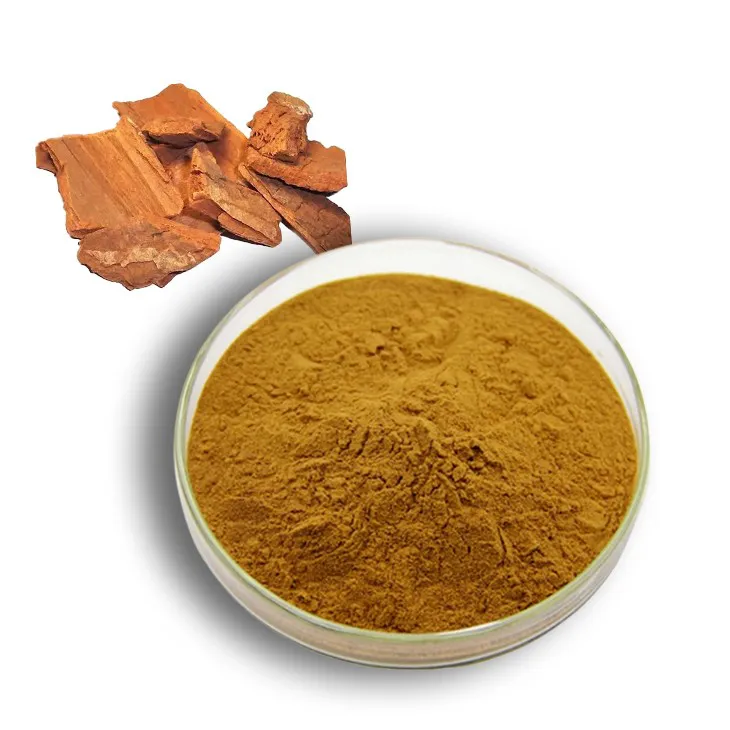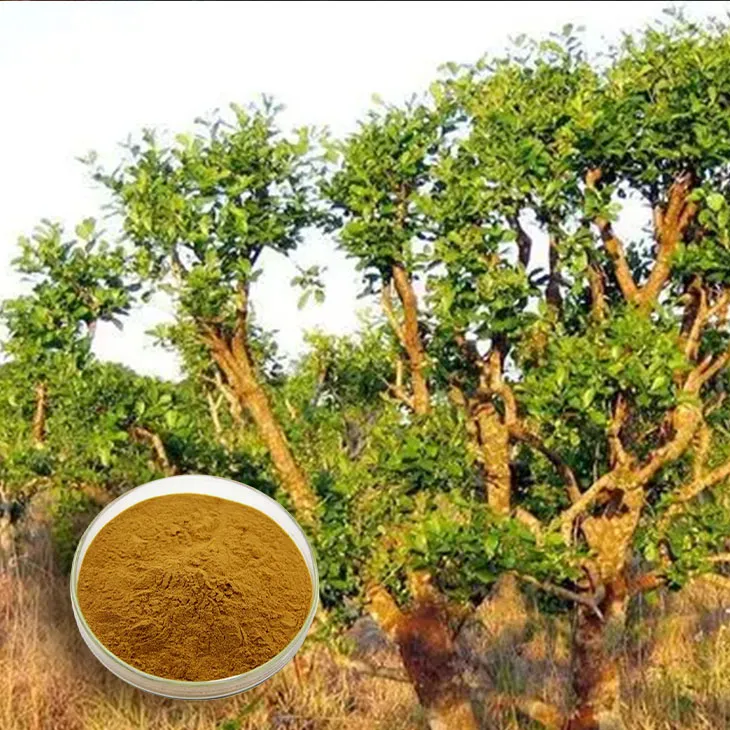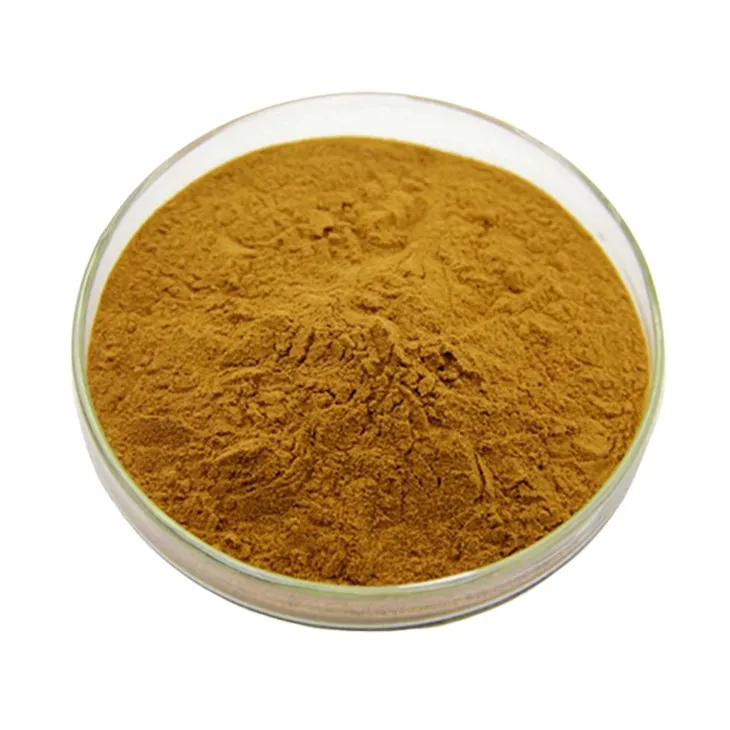- 0086-571-85302990
- sales@greenskybio.com
Yohimbine Bark Extract by Standard Process.
2024-11-28

Introduction to Yohimbine Bark
Yohimbine, sourced from the bark of the yohimbe tree native to specific regions in Africa, has a long - standing history of interest. For centuries, this bark has been recognized for its unique properties. The yohimbe tree grows in particular ecological niches in Africa, and its bark has been used in traditional medicine systems. This historical use has led to modern scientific exploration of the substances it contains.

The Standard Process of Extraction
The standard process of extracting yohimbine from the bark is crucial in obtaining a high - quality end - product. This process involves several carefully controlled steps:
Step 1: Harvesting
The first step is the harvesting of the yohimbe bark. It is important to ensure that the harvesting is done sustainably to protect the yohimbe tree population. Only mature trees are typically selected for bark harvesting. This helps in maintaining the ecological balance in the regions where the trees grow.
Step 2: Preparation
Once the bark is harvested, it undergoes a preparation phase. This may include cleaning the bark to remove any impurities such as dirt, debris, or other plant materials that may be attached to it. The bark is then dried under controlled conditions. This drying process is important as it helps in preserving the bioactive components present in the bark.
Step 3: Extraction
The actual extraction of yohimbine from the prepared bark is a complex process. Different solvents may be used depending on the desired purity and concentration of the extract. The choice of solvent also affects the types of other compounds that may be co - extracted. After extraction, the resulting solution is purified to separate the yohimbine from other substances. This purification step may involve techniques such as filtration, chromatography, or distillation.

Bioactive Components in Yohimbine Bark Extract
The Yohimbine Bark Extract contains several bioactive components, with yohimbine being the most well - known. Yohimbine is an alkaloid that has been the subject of numerous scientific investigations.
- Yohimbine: As mentioned, it has been studied for its role in alpha - 2 adrenergic receptor antagonism. This means that it can block the action of certain neurotransmitters at these receptors. This property has implications for various physiological functions.
- Other Compounds: Besides yohimbine, the extract may also contain other alkaloids, flavonoids, and phenolic compounds. These additional components may contribute to the overall effects of the extract, either through synergy with yohimbine or through their own independent actions.

Physiological Effects of Yohimbine
The physiological effects of yohimbine are diverse and are mainly related to its role as an alpha - 2 adrenergic receptor antagonist.
Blood Flow
One of the key effects is on blood flow. By blocking alpha - 2 adrenergic receptors, yohimbine may cause vasodilation, especially in the peripheral regions. This increased blood flow can potentially benefit individuals with certain circulatory problems. For example, in cases of poor peripheral circulation, yohimbine may help in delivering more oxygen and nutrients to the tissues.
Metabolic Effects
Yohimbine may also have an impact on metabolism. It has been suggested that it can increase lipolysis, the breakdown of fats. This effect is thought to be related to its influence on the sympathetic nervous system. By enhancing lipolysis, yohimbine may play a role in weight management, although more research is needed to fully understand this aspect.
Effect on Sexual Function
There has been some research on the potential role of yohimbine in sexual function. It has been hypothesized that its effects on blood flow and the nervous system may contribute to improved sexual performance. However, this area of research is still in its early stages, and more conclusive evidence is required.

Yohimbine Bark Extract in Herbal Supplements
The standard - processed yohimbine bark extract has a place in the market for natural products, particularly in herbal supplements.
Regulatory Aspects
Due to the potential effects of yohimbine on the body, regulatory measures are in place to ensure its safe use in supplements. These regulations vary from country to country. In some regions, there are limits on the concentration of yohimbine that can be included in a supplement. Manufacturers are required to follow good manufacturing practices to ensure the quality and safety of the products containing yohimbine bark extract.
Consumer Considerations
For consumers, it is important to be aware of the potential benefits and risks associated with yohimbine - containing supplements. Some individuals may experience side effects such as increased heart rate, anxiety, or insomnia when taking yohimbine supplements. It is advisable for consumers to consult a healthcare professional before starting any new supplement regimen, especially if they have pre - existing medical conditions or are taking other medications.
Research on Yohimbine Bark Extract
Research on yohimbine bark extract is ongoing, and new findings are continuously emerging.
Clinical Trials
Clinical trials are being conducted to further understand the efficacy and safety of yohimbine in various applications. For example, trials are looking at its use in treating circulatory disorders, obesity, and sexual dysfunctions. These trials involve careful monitoring of participants to assess both the positive and negative effects of yohimbine.
Mechanistic Studies
Mechanistic studies are focused on understanding the exact molecular mechanisms by which yohimbine exerts its effects. Scientists are investigating how yohimbine interacts with alpha - 2 adrenergic receptors at the cellular and molecular levels. This knowledge can help in the development of more targeted therapies based on yohimbine or its derivatives.
Conclusion
The standard - processed yohimbine bark extract is a complex and interesting substance with potential benefits for health. However, its use requires careful consideration due to its potential side effects. Understanding the standard process of extraction, the bioactive components, and the physiological effects is essential for all stakeholders, including consumers, manufacturers, and researchers. Continued research is needed to fully unlock the potential of yohimbine bark extract in various applications.
FAQ:
What is the significance of the standard process in Yohimbine Bark Extract?
The standard process of extraction is crucial as it ensures a high - quality end - product. It helps to preserve the bioactive components present in the yohimbe bark. A proper extraction process also guarantees consistency in the composition of the extract, which is important for its various applications, whether in scientific research or in the production of herbal supplements.
What are the main bioactive components in Yohimbine Bark Extract?
Yohimbine is a major bioactive alkaloid in the yohimbe bark extract. There may be other components as well, but yohimbine has been the focus of many studies due to its role in alpha - 2 adrenergic receptor antagonism. These bioactive components contribute to the potential physiological effects of the extract.
How does Yohimbine Bark Extract affect blood flow?
Yohimbine, through its alpha - 2 adrenergic receptor antagonism property, may increase blood flow, especially in the peripheral regions. By blocking these receptors, it can potentially lead to vasodilation, allowing for better circulation. This could be beneficial for individuals with certain circulatory problems.
Is Yohimbine Bark Extract safe to use?
While Yohimbine Bark Extract is often included in herbal supplements, regulatory measures are in place to ensure its safe use. However, due to its complex nature and potential impact on the body's systems, it should be used with caution. People with certain medical conditions or those taking other medications should consult a healthcare professional before using products containing this extract.
What is the role of Yohimbine Bark Extract in the market for natural products?
Yohimbine Bark Extract has a place in the market for natural products as it is often included in herbal supplements. It is sought after for its potential physiological benefits, such as those related to blood flow improvement. However, the market also has regulatory requirements to ensure the quality and safety of products containing this extract.
Related literature
- The Pharmacology of Yohimbine: A Review"
- "Yohimbine Bark Extract: Production and Quality Control"
- "Alpha - 2 Adrenergic Receptors and Yohimbine: Implications for Circulation"
- ▶ Hesperidin
- ▶ citrus bioflavonoids
- ▶ plant extract
- ▶ lycopene
- ▶ Diosmin
- ▶ Grape seed extract
- ▶ Sea buckthorn Juice Powder
- ▶ Beetroot powder
- ▶ Hops Extract
- ▶ Artichoke Extract
- ▶ Reishi mushroom extract
- ▶ Astaxanthin
- ▶ Green Tea Extract
- ▶ Curcumin Extract
- ▶ Horse Chestnut Extract
- ▶ Other Problems
- ▶ Boswellia Serrata Extract
- ▶ Resveratrol Extract
- ▶ Marigold Extract
- ▶ Grape Leaf Extract
- ▶ blog3
- ▶ blog4
-
Vitamin B6 Suppliers
2024-11-28
-
Organic deer antler extract powder factory.
2024-11-28
-
Certified organic coenzyme Q10.
2024-11-28
-
Australian Organic Propolis Extract Powder.
2024-11-28
-
The extraction process of vitamin B6.
2024-11-28
-
How to make powder with selenium yeast?
2024-11-28
-
Bitter Melon Extract
2024-11-28
-
Nutmeg Extract
2024-11-28
-
Fenugreek Extract Powder
2024-11-28
-
Diosmin
2024-11-28
-
Citrus Aurantium Extract
2024-11-28
-
Quercetin
2024-11-28
-
Troxerutin
2024-11-28
-
Apricot Powder
2024-11-28
-
Kidney Bean Extract
2024-11-28
-
Avocado Extract Powder
2024-11-28





















